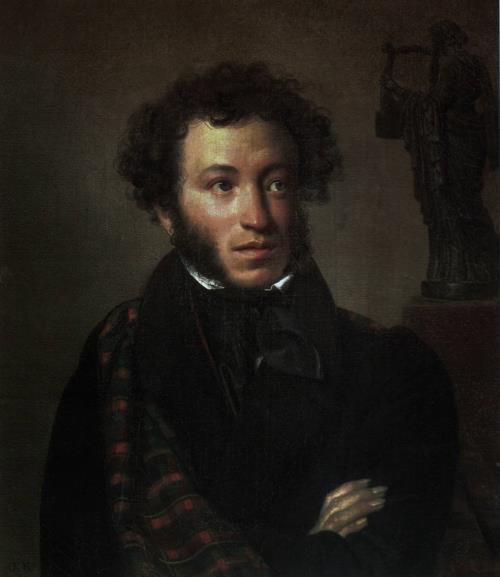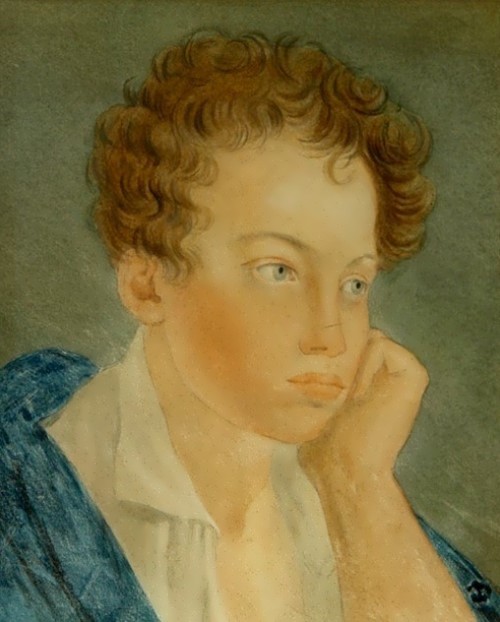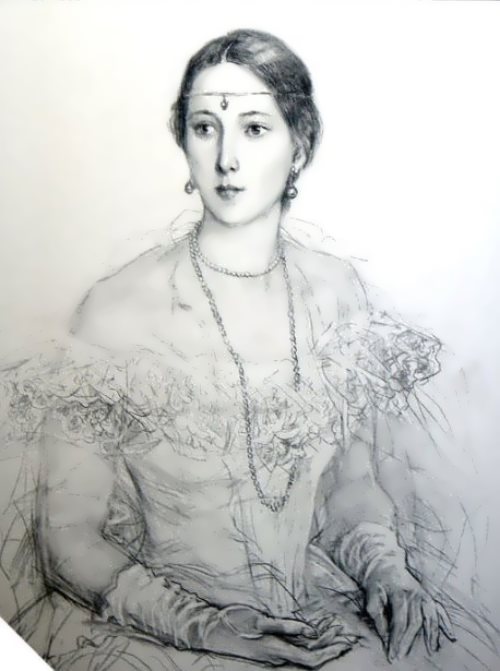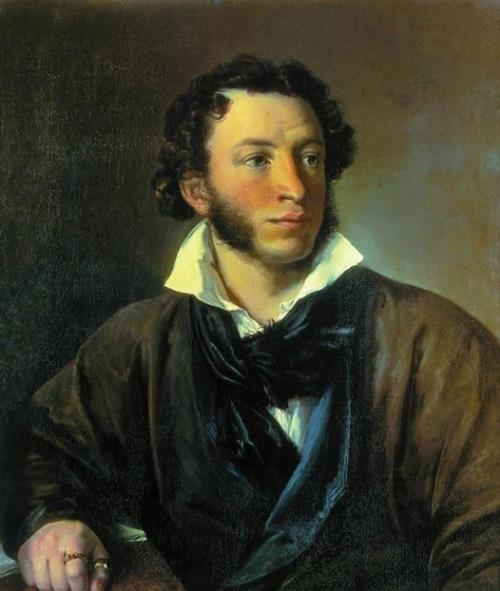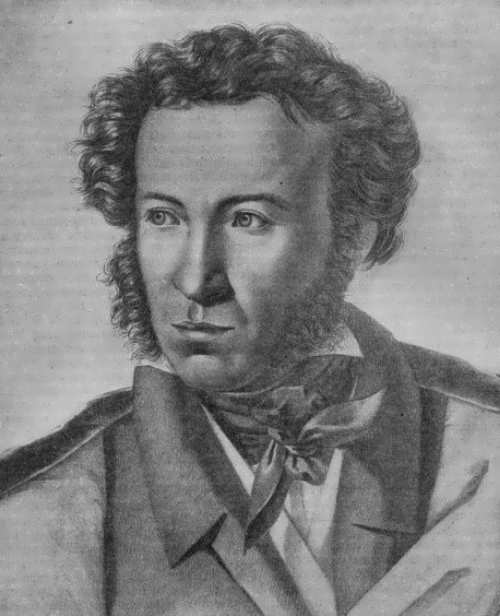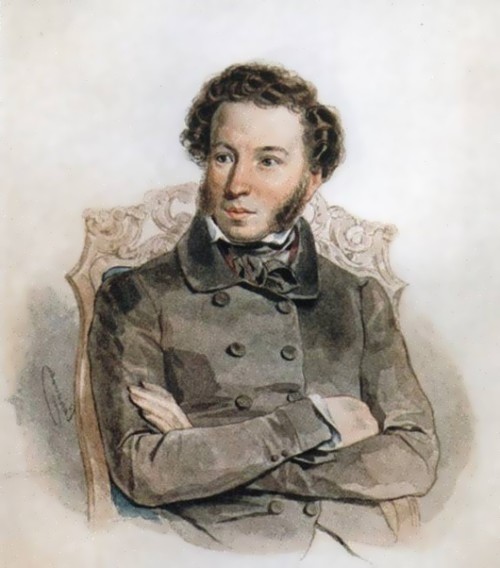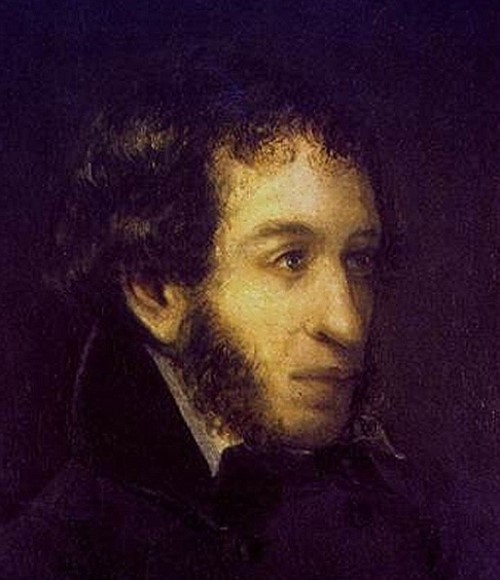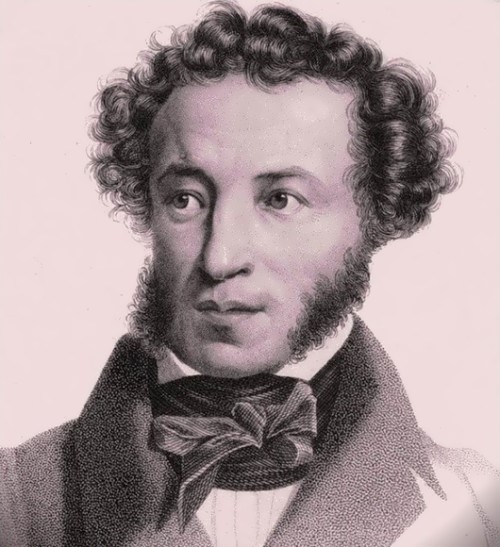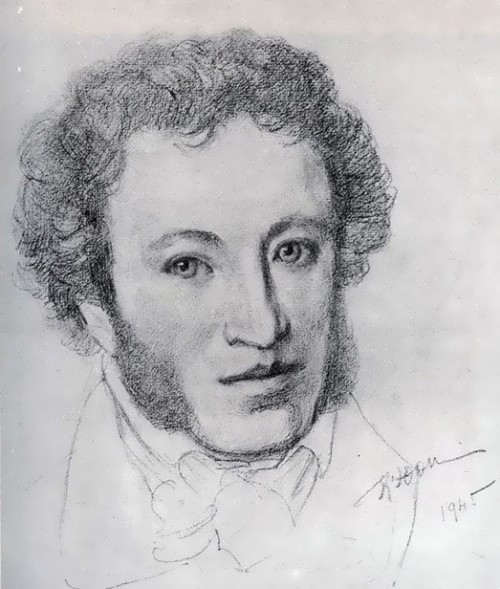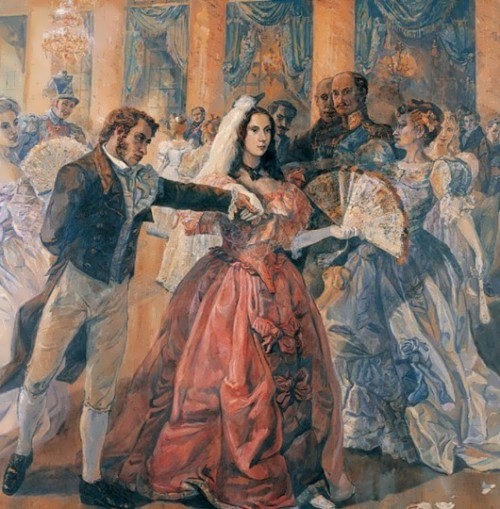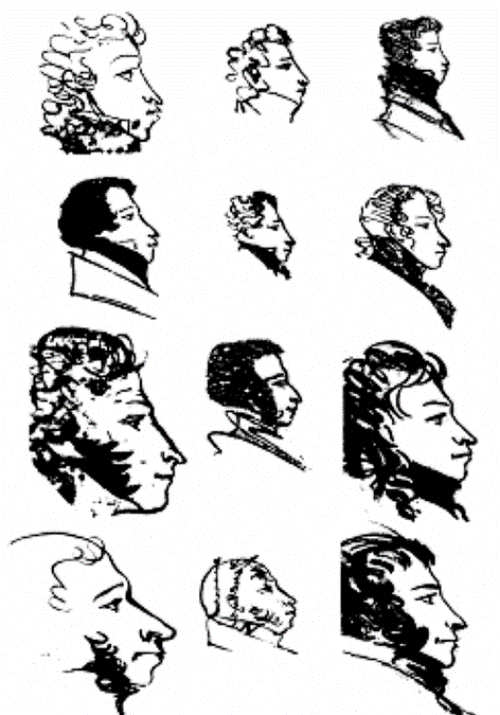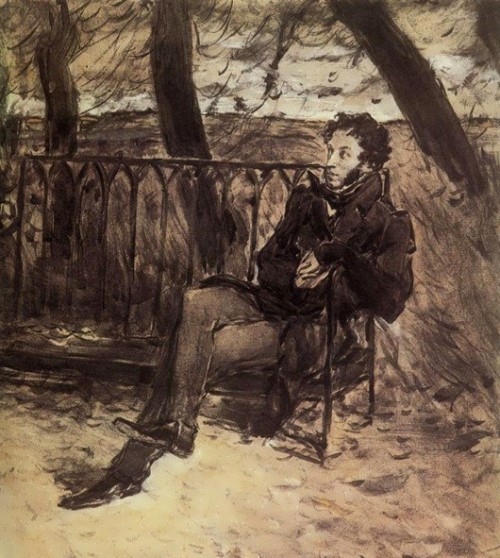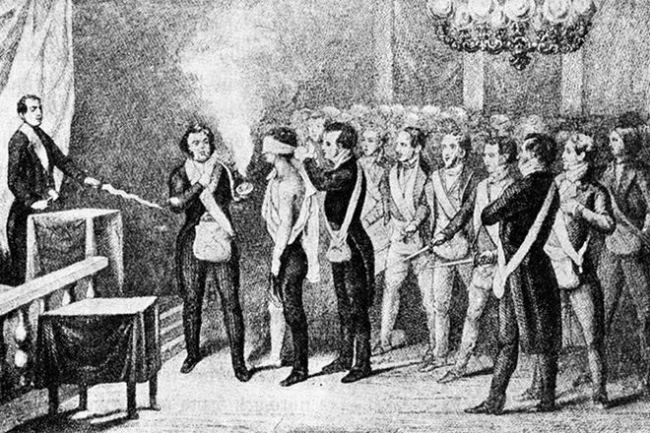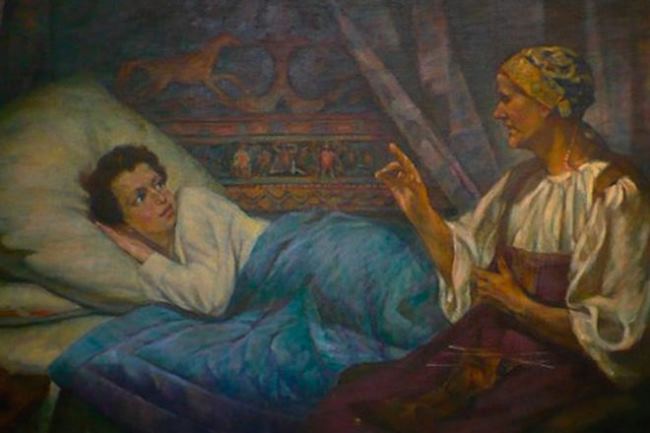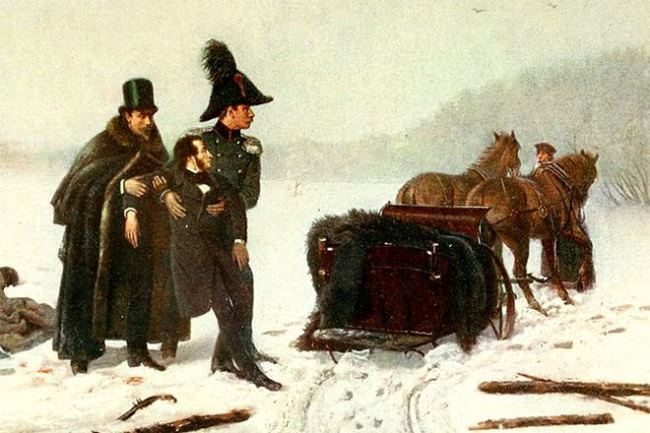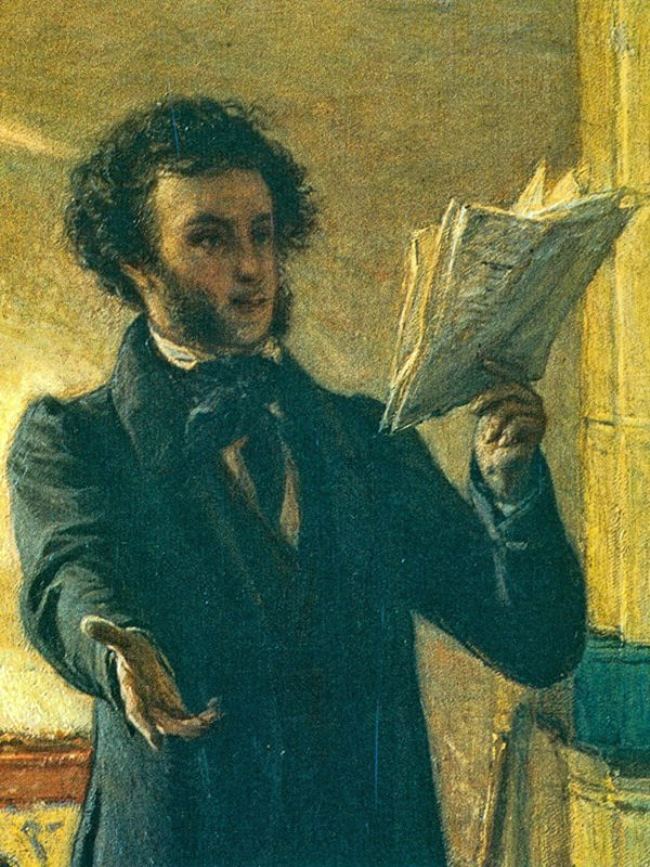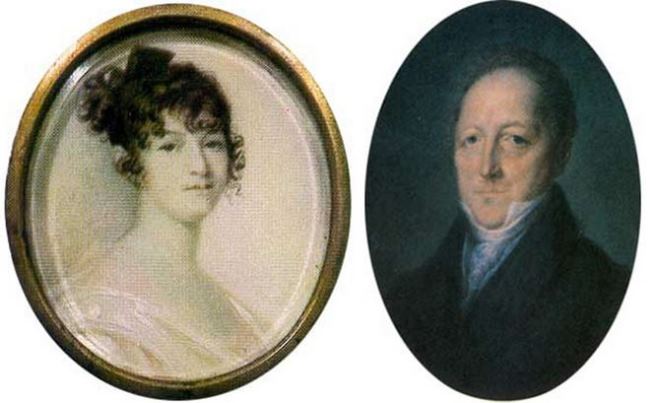Alexander Pushkin – Sun of Russian literature
Alexander Pushkin is one of the most famous and greatest poets. He is the most important Russian writer of all time, like Shakespeare in England or Dante in Italy. Pushkin provided the standards for Russian arts and literature in the 19th century. Russian children have grown up with his characters: learned cat, who walked round the oak-tree, exiled Prince, who was turned into a bumble-bee. Later they experienced Onegin’s boredom, Tatiana’s unrequited love, Godunov’s uneasy conscience, Herman’s tension at the gaming table, Saliere’s jealousy of Mozart.
Alexander Sergeevich Pushkin was born on June 6, 1799 in Moscow, into the family of a retired major, a hereditary nobleman, Sergei Lvovich Pushkin. Mother Nadezhda Osipovna was the great granddaughter of Abram Hannibal, the famous Negro of Peter the Great.
In addition to Sasha, there were two other children in the family: Lev and Olga. Alexander’s parents were very educated people. Prominent creative personalities: artists, poets and musicians, often visited their house. Alexander and his brother and sister learned to speak French. When Sasha was a small boy he spent a lot of time with his old nurse, Arina Rodionovna Yakovleva. She was a simple Russian woman, but she loved the boy, paid a lot of attention to him, she told him many tales.
His father had a magnificent library and the boy was fond of reading. Also he borrowed books from the library of the Buturlins and his uncle Vasily Lvovich.
Twelve-year-old Pushkin along with his uncle went to Petersburg, in order to enter the newly opened Lyceum at Tsarskoye Selo. The lyceum was under the patronage of the imperial family and Alexander became one of the first thirty students who studied there. While at the Lyceum Pushkin began to write the romantic poem Ruslan and Lyudmila. It brought Pushkin fame, and Zhukovsky presented his portrait to the poet with the inscription “To the victorious pupil from the defeated master”.
From 1817 to 1824 Alexander worked in the foreign office at St. Petersburg. Later he used this knowledge in Notes on Russian History of the XIII Century written in 1822.
He was friends with hussars and poets, with artists and musicians, fell in love, fought in duels, visited theaters, fashionable restaurants, salons, literary circles. Women had always occupied one of the main places in his life and work, and especially during his youth. Pushkin admired his muses, devoting poetry to them, extolling their spiritual qualities.
He traveled in the Caucasus, the Crimea and gained the impressions for his romantic narrative poems: The Prisoner of the Caucasus, The Robber Brothers and The Fountain of Bakhchisaray.
In 1823 he started work on the novel in verse Yevgeny Onegin (1833), which became the linguistic and literary standard. Pushkin finished the first chapter of the famous novel in 1823. But it appeared only on the 15th of June in 1825. This novel was written during seven years, four months and seventeen days. He finished it in 1830. The whole novel was published only in March, 1833.
For his letters against the tsar, the poet was exiled to Mikhailovskoye. Although the two years at Mikhaylovskoye were unhappy for Pushkin, they were one of his most productive periods. Alone and isolated, he wrote The Gypsies, the poem Count Nulin, the historical tragedy Boris Godunov. In 1824, Tsar Nicholas I allowed Pushkin to return to Moscow.
Another extremely productive period is connected with Boldino, a family’s estate near Nizhny Novgorod.
Pushkin fell in love with Natalia Goncharova, who was 16 then, and in 1830 they got married. From 1832 to 1836 Natalia gave birth to two daughters and two sons: Maria, Alexander, Grigory and Natalia.
His wife was suspected of an affair with Baron Georges D’Antes; this became the subject of gossip. Pushkin challenged D’Antes to a duel and was mortally wounded. Great poet died on February 10, 1837.
Pushkin’s use of the Russian language is astonishing in its simplicity and profundity. His importance as a great national poet was recognized even during his lifetime. Also he exerted a profound influence on other aspects of Russian culture, most notably in opera.
His works are translated into all the major languages. Pushkin wrote poems, novels, stories many years ago, but they are popular nowadays and millions of people admire them. I think that it is difficult to find a flat without books by A. S. Pushkin.
You know, Pushkin and Lev Tolstoy are distant relatives. The great-grandmother of Alexander Sergeevich and great-great-grandmother of Lev Nikolaevich were sisters.
